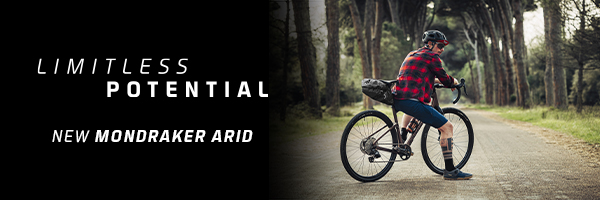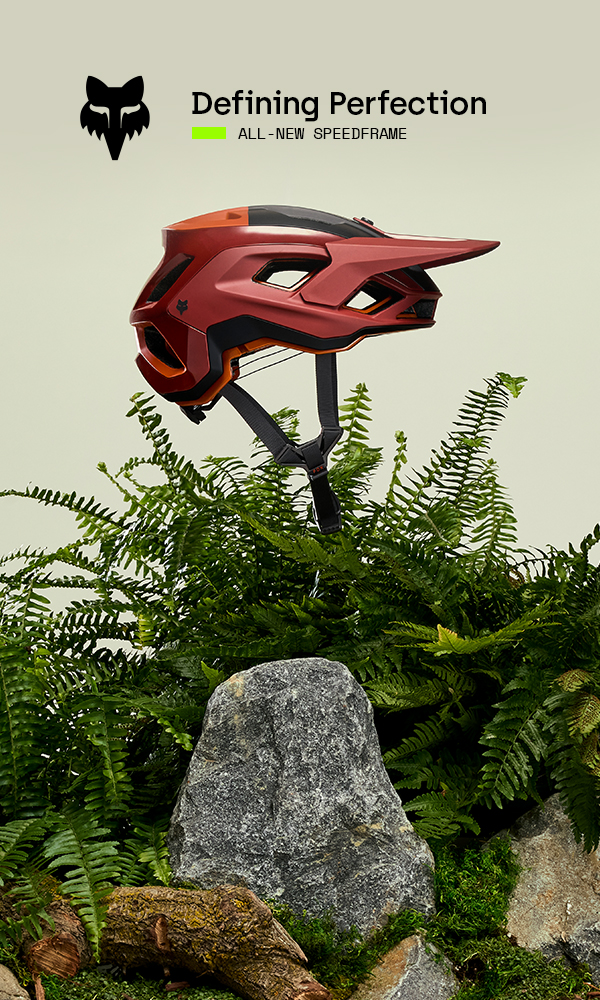Are bike shops the new third place? After first opening its doors in Denver, Colorado, in 2023 Treehouse Cyclery recently moved to Boulder. Hailey Moore writes about the factors that influenced the owners’ decision to move and how Treehouse is serving its community, during and after hours.
Treehouse Cyclery Moves to Boulder, CO
“Our plan was always to be in Boulder,” said Alyssa Gonzalez, just a few days after she and business partner Kolby Clements reopened their shop, Treehouse Cyclery, in (arguably) the cycling capital of Colorado’s Front Range. The duo originally opened Treehouse in Denver in September 2023, in a sun-drenched corner space with a fortuitous backstory rooted in bikes, and Ashley King’s framebuilding project Significant Other in an adjoining studio. “The space was really beautiful, we fell in love with it for sure,” said Kolby. But, over the first 18 months of the new venture, they felt like their mission was starting to shift.
“The goal was always to do adventure cycling and have a bikepacking focus, while also having a large community presence—do a lot of group rides and community events,” Kolby explained. But the logistics of being located in the heart of one of the major metropolises of the Mountain West lent a decidedly urban feel to most of Treehouse’s from-the-doorstep, shop-led rides. Dipping into any extended dirt proved challenging from the confines of a concrete jungle.


Despite the limitations of big-city existence, Treehouse undeniably had a resounding impact in the local bike scene. They made good on their adventure ethos, leading monthly group rides along with a 2024 Swift Campout, and hosted adventure film screenings (including McKenzie Barney’s Cycling the World project) and other guest speakers. They established a bikepacking gear library (a resource that has moved with them to Boulder), through which riders can come in and outfit their bikes with borrowed bags for weekend missions, as a way to try out different systems before incurring the expense of purchasing bike luggage, or if they only venture out for multi-day trips a couple times a year. Treehouse also worked to give back to the community directly surrounding them through events like their annual participation in a Cranksgiving bike food drive, in partnership with the Radical Adventure Riders (RAR) Front Range Chapter.


Treehouse’s Denver Cranksgiving 2024
Still, the commuting and largely utilitarian focus among Denver riders started to impact the shop, from what it stocked on the shelves, to the service counter, to how Kolby and Alyssa themselves felt about how Treehouse was delivering on its core mission.
“We were doing like 50% of everything we wanted,” said Alyssa. “Most customers would walk in the door and ask if we could work on their e-bike—and we don’t work on e-bikes. So it was a lot more commuter-focused and city-focused, and we found ourselves carrying less of the stuff that we wanted to carry. After a while though, we felt like we were shifting our focus to what Denver needed versus what we set out to do as a business.”


I first visited Treehouse at their new Boulder space at 2480 49th Street (Suite C) on opening day, May 29. A sign painter was outside putting the finishing touches on the front window. Inside, Kolby and Alyssa were making some last-minute arrangements on the shelves, displays they’d mostly built themselves. They’d only started moving into the space on May 1 and, in the intervening weeks, Kolby had been picking up shifts wrenching at another shop in town, in addition to all the work the pair needed to complete to get the new space up and running. Still, they’d made it, they were open.
They looked tired—after noon, coffees were still close at hand—yet relieved, the sort of semi-delirious, fatigue-dampened ecstasy that I imagine new parents might feel. But, I learned, pushing opening day back had been non-negotiable, at least on the self-imposed level; the duo had wanted a couple of “softer” days to get things going before the weekend’s big (re)grand opening shindig (an Ombraz collab group ride co-led by a visiting Sarah Swallow, with a hot-dog grill-out après party in the new Treehouse space). And, according to Kolby, that’s just the way Alyssa works, “Once she puts her mind to something, she just kind of does it, which is good because I definitely sit on things for a lot longer. We balance each other out in that regard.”


Looking around the shop, I saw mostly boutique brands: Curious Creatures, Ornot, Ombraz, Ultradynamico, Rene Herse, Nitto, Bassi, and more. Although the ever-escalating levels of uncertainty wrought by the current administration were enough to cause Kolby and Alyssa to consider temporarily shuttering Treehouse, ironically, they haven’t felt too impacted (yet?) by the new tariffs.
“I have two art degrees—Kolby has been a bike mechanic for the last eight years—I know nothing about tariffs,” said Alyssa. “The last six months has been a lot of education on our end on how the government actually affects a small business… There’s always pros and cons to our mission being mostly focused on [carrying] smaller bike brands, that can lean more boutique and more expensive because a lot of [them] are US-made or small-batch. But, in this case, I think it was a pro, because a lot of people were already making things here.” Still, she added that they’re keeping a close eye on inventory as the economic environment continues to fluctuate and are staying mentally prepared to pivot.



In addition to an accelerated course on tariffs and global trade, I was curious to hear what the last nearly two years of being new business owners had taught the Treehouse co-founders. “Everything just comes down to money and numbers,” said Kolby with a rueful laugh. “There’s just so much math and thinking about stuff that is separate from me working on bikes. I’ve never had a job that is just so constant.” (See the previous new-parent analogy, again.)
Given Kolby’s nuts-and-bolts answer, it made sense that Alyssa, in turn, would look to the brand side of being a business owner, while getting to the heart of something so pertinent in these times; “You can’t just be a business anymore… There has to be something that excites people. Over the last two years, we’ve seen how important it is to our community to be more than just a bike shop.”

More Than Just a Bike Shop: The New Third Place
The concept of a “third place” existed long before sociologist Ray Oldenburg coined the term in the late 1980s, but the importance of them is clearly making a comeback today—and Treehouse’s approach to brand-building reflects this resurgence. (Incidentally, Oldenburg’s longtime collaborator Karen Christensen is releasing an updated sequel to his original The Great Good Place (1989) this month; both books examine the third-place concept within their respective zeitgeists.)
As Oldenburg defined them, a “first place” is the home (and those you live with), a “second place” is your workspace or office, and a “third place” is somewhere you can “relax in public,” feel connected, and build community—historical examples might include a public square, artist salon, bar, teahouse or coffee shop.
In modern times, and specifically post-COVID modern times in an economic landscape where brick-and-mortar retailers are struggling, I think third places are taking on new, and multi-faceted, forms. As more people are abstaining from regular drinking, I’m sure I’m not the only one who has noticed the uptick in business concepts tailored to group cold plunging and sauna sessions, concepts designed to provide alternative outlets for disinhibition. I’ve seen other creative business models spring up, too, as solutions to giving people a reason to gather—a flower store partnering with an independent bookshop (what could be dreamier?); the unexpected revival of record stores; in downtown Boulder, a new(ish) vintage clothing store that also serves tacos and margaritas; and, how many businesses with otherwise unrelated inventory now have a coffee bar?


I think that one reason some cyclists may feel betrayed by the current, increasingly optimized (indulge me) “spirit of gravel” is because many saw Gravel—the abstract broader community, but also races and events—as a new third place. But, now, it feels a bit co-opted by the hyper-commercialized road culture that it initially aimed to replace, at least at the largest events. Despite the shifts in Gravel as a category for brands to measure ROI, the community element around off-road cycling continues to be growing, at least from this rider’s perspective, with bike shops and alternative group rides and non-competitive rallies stepping in to continue offering that reason to gather.
As far as kick-off parties go, Treehouse’s late-May Boulder open house seemed to bode well for how the shop will find its footing in a new city and its attendant community (one that may have its own reputation, but is irrefutably adventure-minded). The shop has a slate of summer rides queued up, including an upcoming Swift Campout bikepacking overnighter, and a ride series in collaboration with Teravail. Of course, all of these events happen outside of the store’s official business hours but, for the Treehouse owners, they see this extra effort as what differentiates them from other shops, or Amazon. “One of the biggest learnings [has been] the community piece, it’s one of the more important pieces for people who come in,” explained Alyssa. “They can get all of these things online… but most people come in looking for that thing they’ve been missing in their life.”



As Alyssa stated, with its emphasis on “being more than just a bike shop,” Treehouse Cyclery is actively seeking to fill this void in the social fabric that many may be feeling, consciously or subconsciously. When I rolled up to their open house party, I was amazed at the turnout; the sidewalk was littered with dozens of bikes and the garage door was open, clusters of people spilling out from the spacious interior to covered tents out front. Free hot dogs and cold seltzers are a nice perk, but of course, that’s not why the event had drawn such a crowd.
I milled around and chatted with people that I tend to only see at these kinds of events, good acquaintances who I always enjoy catching up with more than I expect. The energy felt like a lively neighborhood grill-out, the social pulse a steady upbeat hum, but never truly raucous. By the end, I’m sure most everyone was no longer noticing the neatly ordered displays of merchandise or the just-hung tools behind the service counter. The fact that Treehouse is a bike shop would become important again when it opened its doors at 10 am on Tuesday morning, but for now everyone was here in search of something more.


































































































